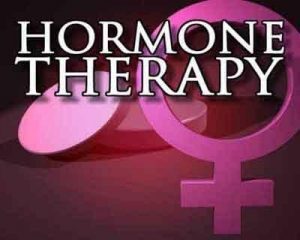- Home
- Editorial
- News
- Practice Guidelines
- Anesthesiology Guidelines
- Cancer Guidelines
- Cardiac Sciences Guidelines
- Critical Care Guidelines
- Dentistry Guidelines
- Dermatology Guidelines
- Diabetes and Endo Guidelines
- Diagnostics Guidelines
- ENT Guidelines
- Featured Practice Guidelines
- Gastroenterology Guidelines
- Geriatrics Guidelines
- Medicine Guidelines
- Nephrology Guidelines
- Neurosciences Guidelines
- Obs and Gynae Guidelines
- Ophthalmology Guidelines
- Orthopaedics Guidelines
- Paediatrics Guidelines
- Psychiatry Guidelines
- Pulmonology Guidelines
- Radiology Guidelines
- Surgery Guidelines
- Urology Guidelines
Hormone therapy for prostate cancer may up cardiac risk

London : Hormone therapy received by men diagnosed with prostate cancer may pose risk to those who have previously suffered a heart attack, a study has found.
Men diagnosed with prostate cancer often receive hormone depleting therapy to block the production of androgens or male sex hormones necessary for the growth and spread of prostate cancer cells.
"Men with a history of heart attack who are at very low risk for biochemical failure may be harmed by the addition of hormone therapy," said lead author Nataniel Lester-Coll from Yale Cancer Center in Britain.
Biochemical failure is a rise in the blood level of prostate specific antigen (PSA) in prostate cancer patients after treatment with surgery or radiation.
"Patient age, cardiac risk, and disease recurrence risk should be considered when selecting candidates for hormone therapy in this patient population," Lester-Coll added.
In the study, the Yale team analysed data from patients aged 50, 60, and 70 years with intermediate- and high-risk prostate cancer. They found that hormone therapy improved patient survival and quality of life.
However, the treatment decreased survival and quality of life in men with a prior history of heart attack, the findings showed.
Hormone therapy was associated with a net decrease of 0.3-0.4 quality of life years in men with a prior history of heart attack.
On the other hand, for all other men, hormone therapy improved quality of life years (range 0.4-2.6).
Men at low risk for biochemical failure also did not benefit from hormone therapy.
Younger patients with fewer cardiac risk factors had the most to gain from hormone therapy, the researchers said.
The findings were presented at the American Society for Therapeutic Radiology and Oncology (ASTRO) meeting in Boston.

Disclaimer: This site is primarily intended for healthcare professionals. Any content/information on this website does not replace the advice of medical and/or health professionals and should not be construed as medical/diagnostic advice/endorsement or prescription. Use of this site is subject to our terms of use, privacy policy, advertisement policy. © 2020 Minerva Medical Treatment Pvt Ltd